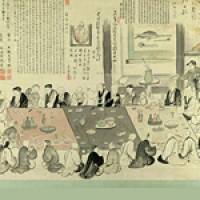From the 17th to the 19th century, Japan's only official window on the West was the Dutch factory in Nagasaki. The trickle of scientific and geopolitical information that came through with the merchant ships was gradually curated by enthusiasts into rangaku or "Dutch learning," arguably laying the foundation for Japan's rapid Westernization following Commodore Matthew Perry's arrival in 1853.
Network of Knowledge: Western Science and the Tokugawa Information Revolution, by Terence Jackson
232 pages
University of Hawai’i, Nonfiction.
Terence Jackson's "Network of Knowledge" uses the ideas of sociologist Pierre Bourdieu (1930-2002) as a lens to examine the networks through which rangaku propagated and thrived. The book is loosely arranged around the career of Otsuki Gentaku (1757-1827), an influential figure during the key decades of rangaku's expansion, which allows Jackson to cover everything from private academies to the role of travel in Dutch learning scholarship.
Although the account of rangaku as a social enterprise is clear and well argued in "Network of Knowledge," it feels drier than it needed to be. We learn about Gentaku's travel diaries and correspondence, for example, but are given only a couple of direct quotations from either. This is a shame, because when Jackson does linger on human detail — such as the oath of diligence Gentaku had new students at his academy swear, or the decor at his New Year's Banquet in 1795 (also seen on the book's cover) — the results are both fascinating and effective illustrations of his more theoretical observations on the role of social capital.


















With your current subscription plan you can comment on stories. However, before writing your first comment, please create a display name in the Profile section of your subscriber account page.